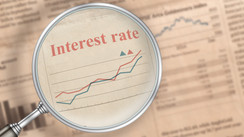Grasping Inflation and its Impact on Finances
Inflation represents the diminishing value of a currency, posing a considerable threat to one's ability to manage escalating costs of goods and services. It plays a substantial role in impacting the investors’ portfolios. Consider a scenario where your income increases by 3% and your investment portfolio grows by 8%, but inflation runs at 9%. In this case, your income and portfolio lose 7% and 2% of their purchasing power respectively.
In light of this, both consumers and investors must factor inflation into their financial planning. Several strategies can be employed to offset the effects of inflation on their investments, including asset diversification, selecting different types of assets, and seeking out higher yielding investments. This article delves into the nature of inflation and explores various approaches to insulate your finances against it.
Understanding Inflation Fundamentals
When people mention that their dollar doesn't stretch as far as it once did, they're essentially discussing the impacts of inflation on their earnings or wealth. Everyone would ideally want their earnings and investments to outstrip inflation to maintain their purchasing power amidst rising prices.
Every country has its unique inflation rate, which is influenced by the nation's overall economy and the effects of its fiscal and monetary policies. Inflation can also target specific sectors, such as the cost of food or gasoline. The three primary types of inflation that sway an economy include demand-pull inflation, cost-push inflation, and built-in inflation.
Unpacking Demand-Pull Inflation
Demand-pull inflation embodies the notion that inflation occurs when there's an excess of money chasing a limited supply of goods. This inflation type surfaces when there's an increase in demand or a scarcity of sought-after products, resulting in higher prices for goods and services. Demand-pull inflation is often linked with loose monetary policies that flood the economy with extra money, intensifying the demand for goods.
Exploring Cost-Push Inflation
Cost-push inflation arises when the cost of goods increases due to producers transferring their elevated wage and raw material costs to consumers. This type of inflation is triggered by a general increase in prices. Higher costs due to wages, which workers require to keep pace with inflation, and materials needed for goods production often result in a decrease in goods supply. This scenario shifts the supply-demand equilibrium and triggers a rise in product and service prices.
Understanding Built-In Inflation
Built-in inflation is the anticipated inflation level within an economy, based on historical levels of both cost-push and demand-pull inflation, as well as the overall business cycle. It shapes economic expectations and planning. Built-in inflation influences consumers through the general inflation level permeating the economy. It also affects investors aiming to achieve high real rates of returns, defined as the return on investment after accounting for inflation.
Risks Associated with Inflation
The Erosion of Purchasing Power by Inflation
Inflation devalues your money, rendering it incapable of buying as many goods and services as before. If your income stagnates in the face of inflation, you might struggle to afford everything you need without resorting to debt. Even if you can cover your necessities, your disposable income for investments or leisure activities may shrink.
Inflation's Role in Driving Interest Rates
Low interest rates expand the monetary base, encouraging businesses and consumers to borrow more money to invest or spend on items like houses, cars, and other goods. Government spending, which also involves borrowing, expands the monetary base as well. This chain reaction gives rise to demand-pull inflation.
This process is why institutions like the Federal Reserve Bank regulate interest rates. They aim to maintain low rates to stimulate the economy but are wary of excessive inflation. Thus, when inflation becomes a concern, they may raise interest rates to shrink the money supply, dampen demand, and curtail inflation. However, higher interest rates can lead to decreased borrowing, slower economic growth, and potential recessions.
The Devaluation of Savings
Inflation can also diminish the value of your savings. Let's assume you saved $10,000, but a 3% annual inflation rate reduces the value of this sum. After a year, your savings would only have the purchasing power of about $9,700 in today's dollars, despite still technically being $10,000. If your savings don't grow at a rate that outpaces inflation, you effectively lose money over time.
Strategies for Protecting Against Inflation
Investing in Inflation-Protected Securities
Governments often issue inflation-protected securities, such as Treasury Inflation-Protected Securities (TIPS) in the U.S. The principal value of these securities increases with inflation, as measured by the Consumer Price Index (CPI). When the security matures, the investor receives the adjusted principal or the original principal, whichever is greater. Thus, TIPS can offer a reliable hedge against inflation.
Diversifying Your Investment Portfolio
Asset diversification is another strategy to protect your finances against inflation. The impact of inflation varies across different asset classes. Some, such as commodities or real estate, tend to do well during inflationary periods, while others, such as bonds, do not. Therefore, diversifying your portfolio across various asset classes can help insulate your investments against inflation.
Investing in Stocks
Over the long term, stocks have traditionally provided a hedge against inflation. Companies often have the ability to pass higher costs on to consumers, protecting their profit margins during inflationary periods. Moreover, certain sectors, like energy, commodities, or utilities, may perform better during times of rising inflation.
Raising Your Income
Earning more money is another way to offset the impacts of inflation. This could involve negotiating a raise at work, launching a side business, or investing in income-generating assets. However, you need to ensure that the additional income outstrips the inflation rate.
Holding Real Assets
Real assets like commodities, real estate, or precious metals often perform well during inflationary periods. These assets maintain intrinsic value and tend to rise in price along with inflation.
Owning Inflation-Adjusted Bonds
Inflation-adjusted bonds, like TIPS, adjust their principal with inflation. This adjustment helps protect your purchasing power since you will receive an increased payout if inflation rises.
Allocating to High Yield Savings Accounts
While traditional savings accounts might not keep up with inflation, some high-yield savings accounts may offer better returns. Look for accounts with interest rates that outpace the current rate of inflation.

Understanding the impact of inflation and protecting against it is only one aspect of managing your finances effectively. There are many other factors to consider, and developing a broad financial plan can help ensure that you're prepared for a range of economic scenarios.
Importance of Financial Planning
Financial planning involves developing strategies to help you manage your financial affairs to meet your life goals. This can involve anything from budgeting, to investing, to retirement planning, to estate planning.
With a comprehensive financial plan, you're not only protecting yourself against inflation but also other potential financial risks such as market downturns, unemployment, or unexpected medical expenses.
Budgeting and Saving
Budgeting is a key aspect of financial planning. It involves understanding your income and expenses and planning for how to save and spend your money. A budget can help you identify areas where you can cut back and save more.
Saving is equally important. This not only includes saving for specific goals like buying a house or going on vacation but also building an emergency fund to cover unexpected expenses.
Investing
Investing involves using your money to buy assets that you believe will offer a good return over time. This can include a range of asset classes such as stocks, bonds, mutual funds, real estate, and more.
Investing plays a key role in building wealth and can also help you keep ahead of inflation. However, it's important to understand that investing involves risks, and it's possible to lose some or all of the money that you invest.
Retirement Planning
Retirement planning involves making arrangements to ensure that you're financially secure when you stop working. This can involve saving money in retirement accounts, investing in a pension plan, or setting up other forms of income for when you retire.
Retirement planning should consider inflation, as the value of your retirement savings can be eroded by inflation over time.
Estate Planning
Estate planning involves making arrangements for what will happen to your assets after you die. This can involve writing a will, setting up trusts, or taking out life insurance. Proper estate planning can ensure that your loved ones are financially secure after your death and that your assets are distributed according to your wishes.
In conclusion, protecting your wealth against inflation is an important aspect of financial management. However, it's only one piece of the puzzle. Effective financial planning involves a comprehensive approach that takes into account a range of factors and strategies to help you achieve your financial goals and secure your financial future.
Tax Planning
Another crucial aspect of financial management is tax planning. This involves understanding how tax laws apply to your personal and financial circumstances and making use of strategies that can minimize your tax liability. Some common tax planning strategies include taking advantage of tax deductions and credits, contributing to tax-advantaged retirement accounts, and strategically timing income and expenses.
Tax planning is particularly relevant when considering strategies to hedge against inflation. For example, when investing in Treasury bonds or in the stock market, the interest or dividends you earn, as well as any capital gains when you sell your investments, may be subject to tax. Understanding these tax implications can help you make more informed investment decisions.
Insurance Planning
Insurance plays a key role in a comprehensive financial plan. It provides financial protection against various risks that could otherwise have a significant impact on your finances. This can include risks related to your health (health insurance), your home (homeowner's insurance), your car (auto insurance), or your life (life insurance).
Like other aspects of financial planning, insurance needs to be considered in the context of your overall financial situation and goals. The amount and type of insurance that you need can depend on a range of factors, including your age, your health, your family situation, and your financial goals.
Professional Financial Advice
For many people, managing their finances and planning for the future can be a complex and daunting task. This is where professional financial advice can be invaluable.
Financial advisors can provide expert guidance on a range of financial matters, from investing to retirement planning to tax planning. They can help you develop a comprehensive financial plan that's tailored to your individual circumstances and goals. Importantly, they can also provide advice on how to protect your wealth against inflation.
A Holistic Approach to Financial Management
In conclusion, protecting against inflation is a crucial component of financial management. However, it should not be viewed in isolation. Rather, it should be part of a holistic approach to financial management that considers a range of factors and strategies. From budgeting and saving, to investing and retirement planning, to tax and insurance planning, a comprehensive financial plan can help you navigate the complexities of the financial world and secure a prosperous financial future.
Conclusion
Inflation can erode your purchasing power and reduce the value of your investments. However, you can employ various strategies to protect your finances against inflation. By understanding the fundamentals of inflation and its impacts, you can make informed decisions about your financial future. Whether it's investing in inflation-protected securities, diversifying your portfolio, raising your income, or owning real assets, there are several ways to protect and grow your wealth even in the face of rising prices.





